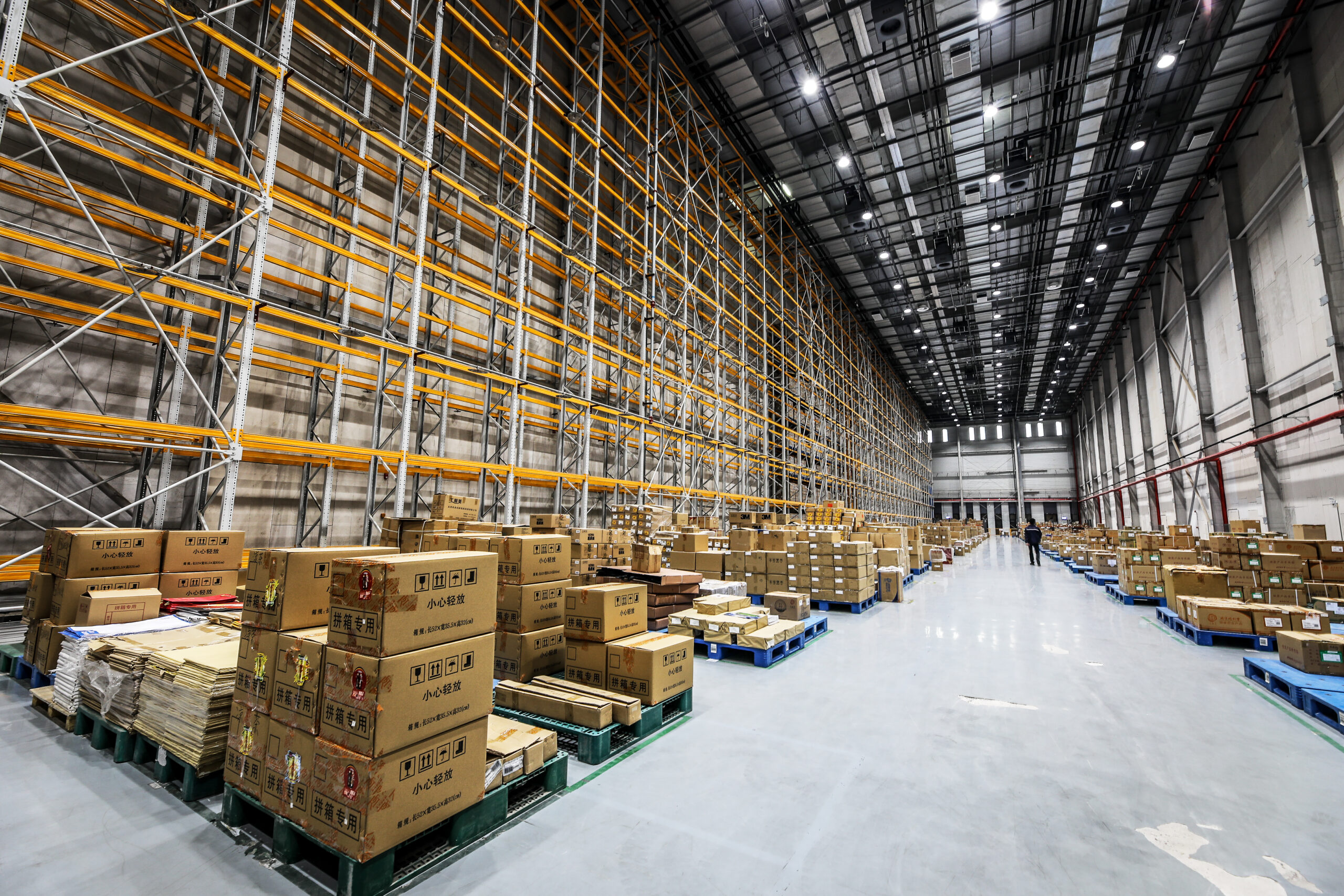Wayne Snyder, VP Retail Industry Strategy, EMEA at Blue Yonder
Supply chain disruption has been evident across all industries over the past two years, affecting both businesses and consumers. Empty shelves and price increases have become commonplace, and now the rising cost of living and growing inflation has increased the focus on the role of supply chains in the economy.

The latest research from Blue Yonder revealed that almost all businesses (97%) have faced disruption to their supply chains in the last 12 months. From customer delays to stalled production and shortages, nearly two-thirds of businesses are now prioritising their supply chain – and rightly so.
As organisations look to the future, our research also highlights that the biggest concerns are the COVID-19 pandemic, Brexit and a pressure to be more sustainable. But how can businesses mitigate risks and take back control of their supply chains?
In today’s climate, better planning is key. This requires businesses to have more visibility, be more responsive and embrace new technologies like artificial intelligence (AI), to enhance operational efficiency and streamline operations. Utilising technology supports organisations to improve the omnichannel experience, focus on sustainability and enhance workforce management across the entire supply chain. In doing so, businesses will be able to reap economic benefits, maintain business continuity and future-proof operations in the face of disruption.
Adapting to demand
The COVID-19 pandemic highlighted how quickly consumer demand can change, and how important it is for retailers to react quickly. In order to put the customer first, those organisations that utilised omnichannel were able to scale their online businesses and thrive throughout lockdowns. It demonstrated how vital it is for retailers to utilise different channels to meet customer demand, so they could maintain business continuity when supply lines were affected.
With continued disruption and uncertainty, businesses need to focus on adapting quickly. Consumer habits are constantly changing. The move to online is a good example of this. Consumers now prefer to shop online rather than shopping local, raising questions around the longevity of the high-street. Retailers are also having to navigate Brexit red-tape, pandemic disruption and even delays caused by the weather. Managing this, while providing the right stock, in the right location, at the right time, has never been more important to remaining competitive. This is where technology comes in.
Utilising AI
AI-driven intelligent decision making and end-to-end visibility together will help deliver an effective omnichannel experience and therefore support retailers in meeting consumer demand, regardless of the channel. Our research showed that 53% of organisations believe advancements in AI technology will have the most significant impact in reducing disruption, second to end-to-end visibility (63%).
While there is clear awareness around how AI can help, more needs to be done to demonstrate the importance of AI to business operations. For example, AI can help those companies that are needing to evaluate the right network, across a blend of large warehouses, smaller localised fulfilment centres and deliveries from stores. It’s critical for these elements of the supply chain to be interoperable with intelligent decision-making as to how best to move products from anywhere to anywhere in order to maximise supply chain capabilities.
AI is driving better forecasting and order decisions to ensure that products are at the right place to allow shoppers to buy from wherever, whenever, for example. What’s more, AI can help evaluate product needs, quickly identify new trends and ensure the range is optimised, and assess prime shelf placement when combined with new technologies. Customers want to understand real-time availability and delivery options as they shop with same day delivery and pick-up options, requiring seamless supply chains, involving AI tools analysing millions of data points in real-time to optimise efficiency and decision making. This is where retailers can unlock the power of AI and enhance their supply chains.
Focusing on sustainability
Our research also revealed that over half of organisations (58%) invested in the sustainability of the supply chain in the last 12 months. This is encouraging, given that 2021 research from the MIT Center for Transportation & Logistics, sponsored by Blue Yonder, found that nearly one in ten (9%) businesses had decreased their commitment to sustainability last year, while 55% thought it remained the same or were unsure as to the status.
It’s apparent that business leaders are recognising the importance of supply chain sustainability, with COP26 bringing sustainability back into the spotlight. Retailers need to start investing more in ‘green’ initiatives, especially with pressures coming from governments, regulatory bodies and consumers. Utilising AI and machine learning will give organisations the power to reduce their supply chains environmental impact, while improving efficiency and customer experience and most importantly, remaining profitable.
For example, AI is helping retailers significantly reduce food waste. No longer assuming the past will be replicated, AI understands the influences behind demand to create accurate future forecasts, helping to identify risk and variability so item-level decisions can be made, generating synergies and efficiencies in-store. This not only reduces waste but increases operational efficiency and profits. IoT technologies are also enabling better energy management such as monitoring lighting or even the temperatures of fridges, all without disrupting the customer experience.
Improving workforce management
Supply chains need effective workforce management solutions in order to manage disruption and minimise the effect of labour shortages on the supply chain. Brexit, delays in recruitment caused by lockdowns and even the pingdemic, for example, have revealed just how critical the workforce is to maintaining an efficient supply chain. While we are somewhat moving out of the pandemic, organisations should not be complacent.
Through intelligent analysis and digital engagement, optimised schedules can be created based on the needs of both the workforce and the workload. By accessing real-time insights, companies can adapt and re-forecast accordingly, as well as improve staff morale and retention, helping to keep the supply chain moving. Taking a platform or cloud approach to workforce management additionally allows retailers to share team members across the organisation, rather than be forced to focus on store silos, therefore increasing the workforce available at one store.
Furthermore, AI-driven demand and replenishment models enable significantly improved inventory management, freeing up staff to focus on value-adding activities. This was essential when retailers needed to scale in-store picking processes due to the growth in online shopping. By helping staff to intelligently pick items and create optimised pick routes and lists, combined with real-time and accurate inventory counts, AI can provide a more accurate view of stock which can feedback into inventory management or order orchestration. Retailers can therefore prepare for unforeseen events and ensure greater efficiency using AI, while focusing on delivering an effective customer experience, rather than worrying about staff-shortages.
The future of supply chains
With uncertainties set to continue, organisations need to enhance supply chain operations and minimise the effect of supply chain disruption through new technologies that provide end-to-end visibility and optimisation. AI, alongside ML and advancements in IoT, are enabling supply chains to be more effective, responsive to new challenges and resilient. By using AI to focus on sustainability, put the customer first, and improve workforce management, retailers are one step closer to ensuring their supply chains are able to cope with current and future disruption.
Companies should invest in technology that generates value and that focuses on protecting business continuity and increasing efficiency, a critical component of AI. Ultimately, enhancing the supply chain through technology will support organisations to be prepared in the face of disruption and also thrive moving forward.


